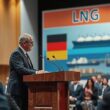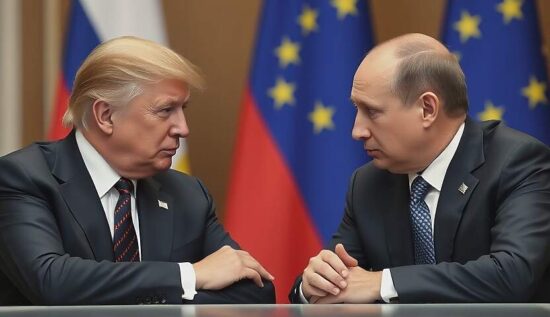The notion that the US, under Donald Trump, could negotiate the Ukraine issue without involving the European Union has raised concerns in Brussels and other European capitals, as well as in Switzerland. Trump, who has run for the presidency again, has repeatedly hinted that, in the event of a re-election, he would directly negotiate with Russia to end the Ukraine war without involving the Europeans. This stance not only questions the geopolitical architecture of the West but could also weaken the EU’s role as a key player in European security and peace politics.
Trump has repeatedly expressed his dissatisfaction with the EU and NATO’s role in the Ukraine crisis, criticizing that European states do not contribute enough to supporting Kiev. The US, according to Trump, has already done enough, and it is time for Europe to take more responsibility. In several statements, the former president emphasized that he would only continue US aid to Ukraine under certain conditions, including direct negotiations with Moscow. Such a step would exclude the EU, which has played a central role in diplomatic efforts to solve the conflict, from a potential peace process.
Trump’s criticism of the EU and NATO is not new: during his first term, he repeatedly urged NATO member states to increase their defense spending, and threatened to reduce US involvement if they did not. Now, in the context of the Ukraine crisis, he suggests that the US should take the initiative in negotiations with Russia without being bound by the EU or other European actors.
This rhetoric has met with little understanding in European capitals. The role of the EU in diplomatic efforts to end the Ukraine war has been seen as crucial by Brussels. The EU has not only imposed economic sanctions on Russia but also provided extensive financial and humanitarian support to Ukraine. Many European politicians are now asking how a future US policy that leaves Europe out could look.
The EU’s response to Trump’s solo act is one of concern. Representatives from Brussels emphasize that the Ukraine crisis can only be solved with a united Western front. “One-sided negotiations without the EU would not only be a setback for our shared values but also a fatal signal to Russia” it is said from EU diplomatic circles. For Europeans, the idea of the US negotiating with Russia without their involvement is a serious challenge to their own foreign policy and their role in the world order.
A significant aspect highlighted by European diplomats is the diplomatic influence the EU has in the Ukraine crisis. While the US provides military aid, the EU plays a central role in the political and economic stabilization of Ukraine. Excluding the EU from future talks could put the Western alliance at risk and leave Ukraine in a geopolitical tight spot between the US and Russia.
Trump’s foreign policy has always stood for a radical break with traditional diplomacy, with a focus on bilateral agreements rather than multilateral negotiations. His potential return to the White House could mean a continuation of this line, with far-reaching consequences for European security architecture and transatlantic relations.
Especially worrying is Trump’s stance on strategic areas like Greenland and the Panama Canal, which he has repeatedly brought up as potential extensions of the US’s sphere of influence. These ideas reflect a broader tendency for the US, under his leadership, to pursue its geopolitical interests in a more one-sided manner.
European concern is not unfounded: if Trump were to really want to solve the Ukraine issue without involving the EU, it would put the transatlantic alliance to a tough test. European diplomats fear that excluding the EU from the talks would not only weaken Europe’s role in the world but also put the long-term goal of a lasting peace solution for Ukraine at risk.





